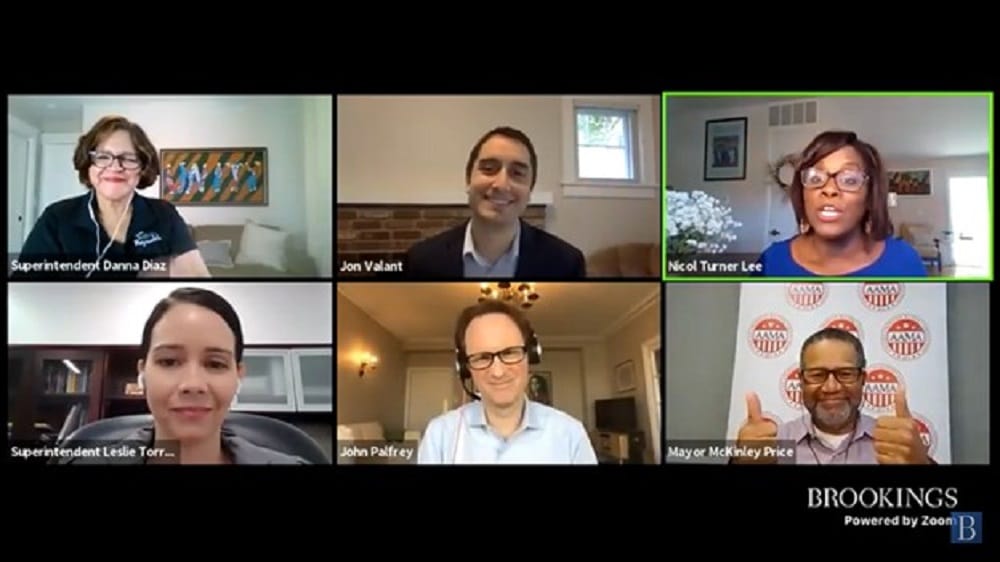Broadband and Education Policy Needs a Rethink in the Biden-Harris Administration, Say Panelists
November 10, 2020 – Broadband needs to be central to efforts to improve education in the wake of the coronavirus pandemic, educators and experts said Monday as they dispensed advice to the incoming administration of President-elect Joe Biden and Vice President-elect Kamala Harris. “’No child left of
Liana Sowa

November 10, 2020 – Broadband needs to be central to efforts to improve education in the wake of the coronavirus pandemic, educators and experts said Monday as they dispensed advice to the incoming administration of President-elect Joe Biden and Vice President-elect Kamala Harris.
“’No child left offline’ should be our focus,” said Brookings Institution Senior Fellow Nicol Turner Lee, referencing they rallying cry of FCC Commissioner Jessica Rosenworcel. Turner Lee said that education needed to include but also be about much more than access to technology.
Turner Lee also called for an office of innovation coordinating between schools and municipalities. Other panelists also called for a shift in mindset
when asked what schools and educators should be asking for in a Biden-Harris administration.
The government is good at providing funding and protecting the civil rights of students, said Brookings Senior Fellow Jon Valant, and that he expected the Biden administration would first focus on adding resources for schools.
McKinley Price, mayor of Newport News, Virginia, called for an expert in educating kids to be put in charge of the Education Department.
Some panelists said they wanted a focus on broadband access. Superintendent Danna Diaz of Reynolds School District in Oregon said she’d like connectivity to be treated as a basic need within education. Better online access cannot be achieved without a private public partnership, she said.
Valant went a step further, saying the goal we need to be moving toward is universal broadband.
John Palfrey, President of the John D. and Catherine T. MacArthur Foundation, also said the administration would focus on funding. Palfrey said federal education budgets grew when things were going well. But the country needs to instead shift to spending more now, when the times are the hardest.
A ‘whole child’ approach, also questions of school re-openings and the academic calendar
Superintendent Leslie Torres-Rodriguez of Hartford Public Schools called for a “whole child” approach that considered student health needs, engagement, and culture. Students need to be challenged as well as supported.
Government-community partnership models are already working and need to be used to unlock policy debates, said Palfrey.
Racial issues need to be considered with antiracist lens because school systems were not created for Black and brown students, said Diaz. “There’s not an achievement gap, there’s a funding gap.”
Torres-Rodriguez said that that Latino students in her district were the least likely to show up in school.
Valant expressed concern that school openings were often more associated with local politics than local health conditions.
Parents of minority students often don’t want to send their kids back to school because of health concerns, he said. Hence many communities with high minority populations have stayed virtual.
Yet this trend is at odds with the fact that many students in this demographic often don’t have access to broadband needed to attend school virtually.
That’s why changes as small as not using tests, or as large as rethinking the academic calendar, should be on the table, said panelists.
Diaz and Price pointed out that the current calendar was created around an agrarian economy. That schedule might not be as efficient, especially when many students have experienced significant learning losses because of the pandemic and need time to catch up.









Member discussion